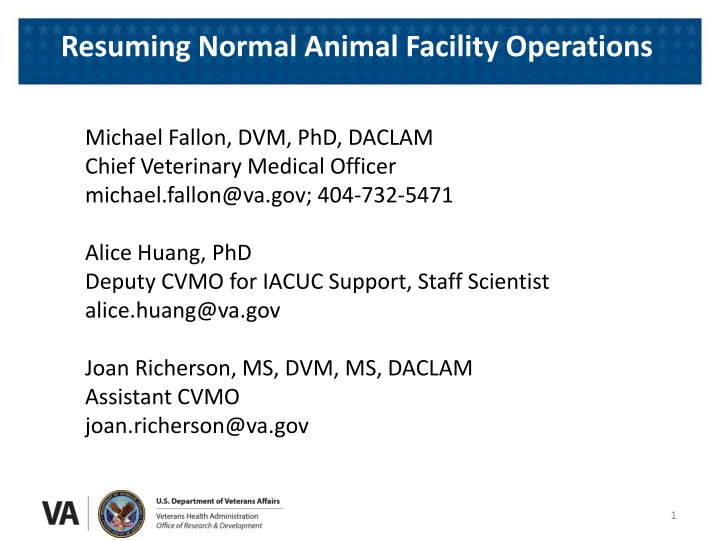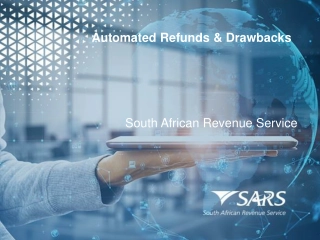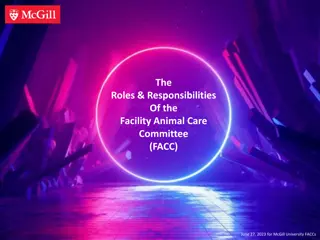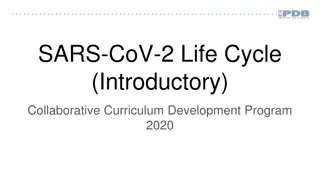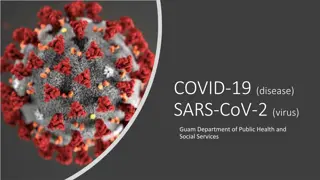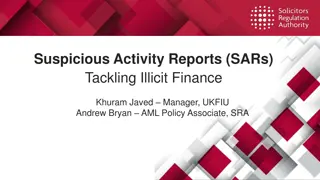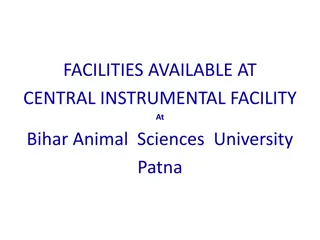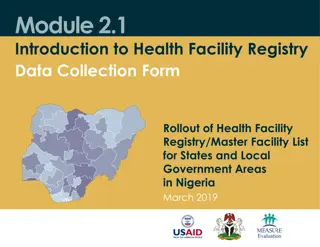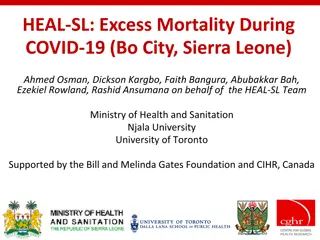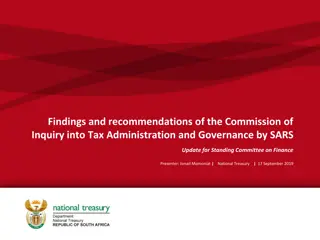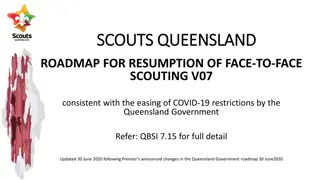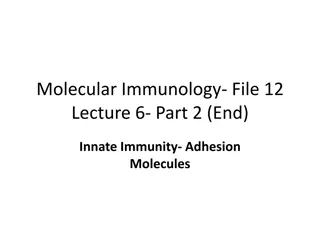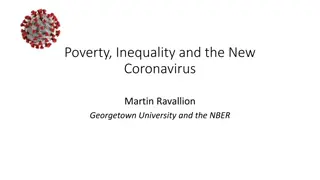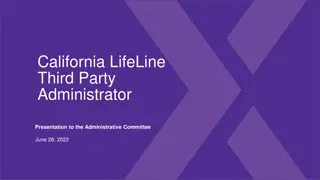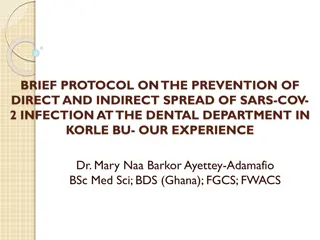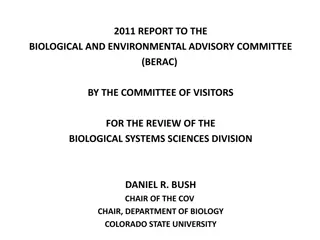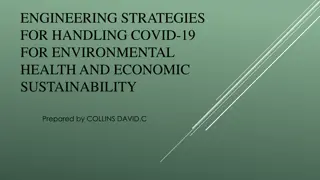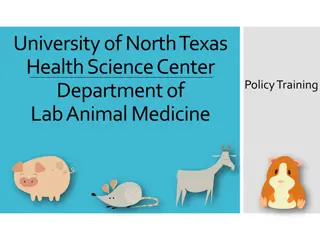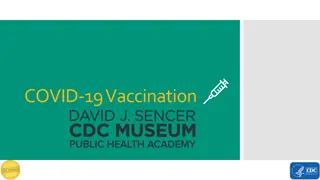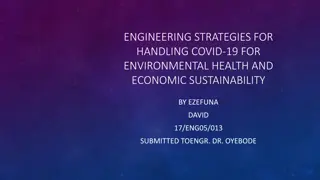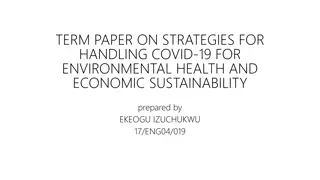Animal Facility Operations Resumption Guidelines Amid SARS-CoV-2 Pandemic
Amid varying impacts of the SARS-CoV-2 pandemic on animal research facilities, guidelines have been issued to help resume normal operations. Emphasis is on ensuring animal care, staff health, and effective separation of research and care activities through strategies like social distancing and PPE use.
Download Presentation

Please find below an Image/Link to download the presentation.
The content on the website is provided AS IS for your information and personal use only. It may not be sold, licensed, or shared on other websites without obtaining consent from the author.If you encounter any issues during the download, it is possible that the publisher has removed the file from their server.
You are allowed to download the files provided on this website for personal or commercial use, subject to the condition that they are used lawfully. All files are the property of their respective owners.
The content on the website is provided AS IS for your information and personal use only. It may not be sold, licensed, or shared on other websites without obtaining consent from the author.
E N D
Presentation Transcript
Resuming Normal Animal Facility Operations Michael Fallon, DVM, PhD, DACLAM Chief Veterinary Medical Officer michael.fallon@va.gov; 404-732-5471 Alice Huang, PhD Deputy CVMO for IACUC Support, Staff Scientist alice.huang@va.gov Joan Richerson, MS, DVM, MS, DACLAM Assistant CVMO joan.richerson@va.gov 1
Animal Research Protection Resumption Memo and FAQs Both documents available at https://www.research.va.gov/programs/animal_research/default .cfm. The animal research resumption memo is more relevant at this time. 2
Resuming Normal Animal Facility Operations The impact of SARS-CoV-2 pandemic has varied widely across the agency- some facilities were heavily impacted, others much less so. Some local animal research programs were suspended and animal maintenance was the only ongoing activity; other programs had minimal disruptions The resumption memo is intended as guidance to help programs think about how to resume normal research support operations, and does not require any particular approach or plan. 3
Goals- Past, Present, and Future Ensure animal care. Keep animal care staff healthy. Note- in this presentation the important distinction is between the conduct of IACUC-approved research ( research support activities ) versus animal care activities (feeding, cleaning, providing medical care to the animals). 4
Maintaining these Goals Separate animal care staff from research staff whenever possible Set aside time for animal care activities when research staff not present Alternate animal care and research activities in the same room so both activities are not happening concurrently Social distancing: Reduce density of people in the animal facility, and manage the density of people working in the same room Stagger shifts to reduce contact between people Place limits on the number of people allowed in the facility or in a single room at the same time. 5
Maintaining these Goals Require the use of PPE. Decide on surgical versus N95 mask usage- N95 recommended for close contact, for example during team-based surgical procedures. Is the supply of PPE adequate to support increased animal research support activities? Decide if some more risky research activities that involve loss of social distancing and increased density can be supported at this time: Team-based procedures like surgery are higher risk Solo procedures like rodent blood collection are less risky 6
Putting it All Together- Resumption Memo Sections Table of sample research activities and animal care activities, with sample risk determinations for each activity. 7
Putting it All Together- Resumption Memo Sections Key factors to help in formulating a resumption plan 8
Putting it All Together- Resumption Memo Sections Additional ideas on limiting interaction between animal care and research staff members, and some ideas on the use of masks: 9
Request to notify ORD when a resumption plan is locally approved and in use (note- ORD does not need to review or approve these) 10
Putting it All Together- Resumption Memo Sections Attached guidance algorithm- may be helpful in developing the resumption plan based upon minimizing risk factors. 11
Any Problems or Questions. We are here to help- contact anyone in the CVMO s office using the contact information in the title slide. If you have a pressing matter to discuss, call Mike Fallon on his VA cell phone at 404-732-5471. 15
